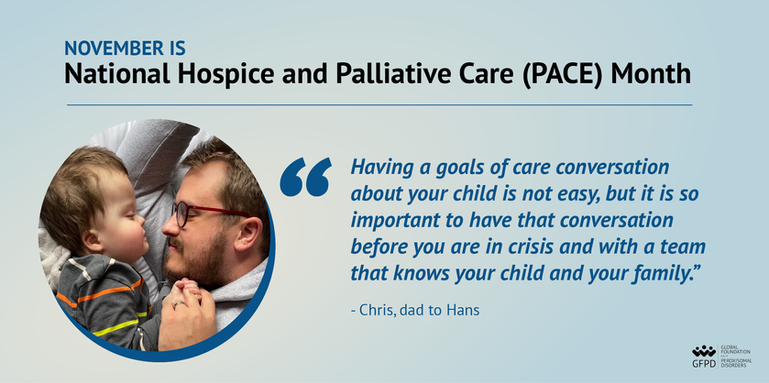“We recommend calling in hospice care.” The words that every terminally ill patient and their family dread hearing. Hospice is a widely known term for the end-of- life care given to persons of all ages who are dying due to an illness. This care is given to allow the patient comfort and grace in their final days. Similarly, palliative care provides comfort for the patient, but this care can be provided at every stage of the illness. It is common to confuse the two or use them interchangeably. This National Hospice and Palliative Care Month, we would like to bring awareness to the importance of these two types of care.

Palliative care is a specialized type of care, used with patients who suffer from serious illness. The treatment focuses on providing relief from symptoms and stress of the illness. This care is provided by a specialized team of medical professionals working in conjunction with the patient’s other doctors to provide additional support and insight into the specific patient’s case. Unlike hospice care, palliative care can be provided at any stage of the illness from diagnosis to end of life. Palliative care brings a holistic methodology of care to patients earlier in the course of their diagnosis.
Hospice is often thought of as a specialty facility, but it is not a specific place, and instead is a type of care that can be provided in your home, as well as other locations. Hospice care allows the patient and their family to live as fully as possible, focusing on quality of life, and is tailored to the patient and their closest loved ones.
The GFPD and other rare disease communities know all too well that not every illness has a possible cure. In fact, 95% of all rare diseases do not have a single FDA approved drug treatment. Hospice and palliative care can allow the patients to live their lives to the fullest of their abilities by providing treatments that include pain management, psychosocial support and spiritual care to the patients and their families. Hospice and palliative care programs utilize a combination of quality medical care and the emotional and spiritual support a family needs to walk the path of living with a serious illness or the end-of-life stage.
We sat down to speak with Chris Ostertag to discuss the importance of Palliative care for his son, Hans, and their family. Hans is a GFPD Warrior who has peroxisomal biogenesis disorder-Zellweger spectrum disorder (PBD-ZSD). He lives at home with his father (Chris), mother (Rachel), and sister (Sophia). Hans is four years old and was diagnosed at three months old. He started his journey with palliative care at one and a half years old at SSM Health Cardinal Glennon Children’s Hospital. Soon they will be adding a palliative care team at OSF Children’s Hospital of Illinois to work in conjunction with their St. Louis team.
“Palliative care has been–and continues to be–the glue that holds everything together for our family.” Says Chris. “Our palliative care team works behind the scenes to coordinate care for Hans with our other specialists, always keeping the bigger picture of Hans and our family in mind for our care team. We established care with palliative care early so the team has truly gotten to know Hans and our family well and they understand what is important to us. Having a goals of care conversation about your child is not easy, but it is so important to have that conversation before you are in crisis and with a team that knows your child and your family. Hans has been taken care of by many wonderful doctors, nurses, therapists, and other health care professionals, but all of them primarily focus on a particular organ system or work to address a particular symptom or concern; palliative care is always about Hans and always about our family.”
As you can imagine, the fields of hospice and palliative care include very specialized medical staff. Along with the specialized training they receive in their specific fields, they each have exceptional hearts. “Every year, nearly 1.4 million people living with a life-limiting illness receive care from hospices in this country,” said Edo Banach, president and CEO of the National Hospice and Palliative Care Organization. “These highly trained professionals ensure that patients and families find dignity, respect and love during life’s most difficult journey.” It is a job for the strongest and the most compassionate. They are the people that make special memories possible for many families.
Throughout the month of November, Programs of All-Inclusive Care for the Elderly (PACE®) will join organizations across the nation in hosting activities that help their community understand how important hospice and palliative care can be. We encourage you to find these activities in your community.
For more information about hospice, palliative care, and advance care planning, visit the National Hospice and Palliative Care Organization (NHPCO) website.
